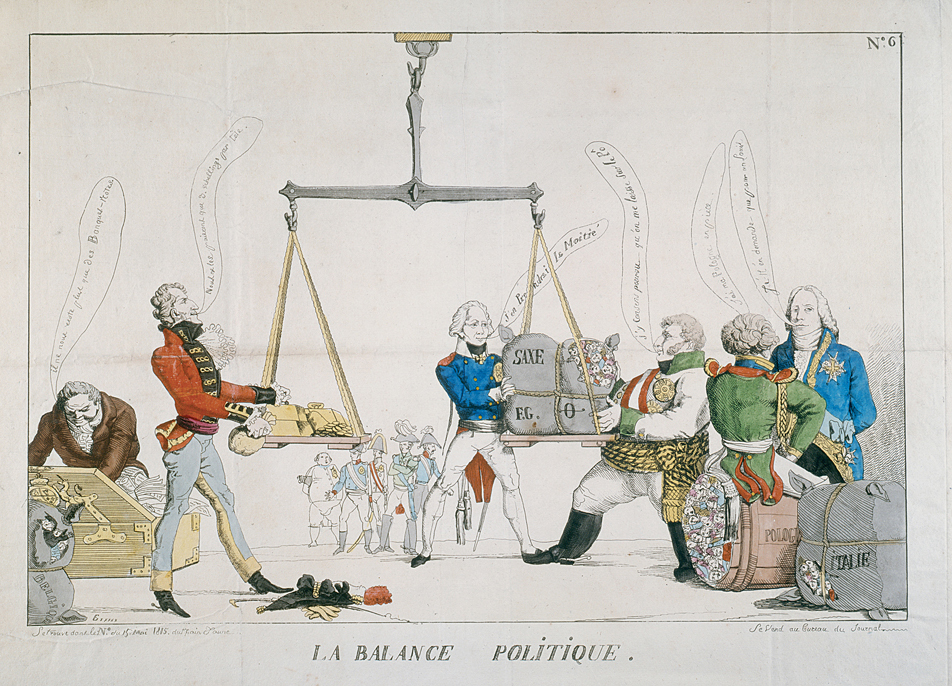A History of World Societies:
Printed Page 717
A History of World Societies Value
Edition: Printed Page 723
The Political and Social Situation After 1815
With the French agreeing to the restoration of the Bourbon dynasty (see Chapter 22), the four allies of the Quadruple Alliance — Russia, Prussia, Austria, and Great Britain — were lenient toward France after Napoleon’s abdication. The first Peace of Paris gave France the boundaries it possessed in 1792, which were larger than those of 1789, and France did not have to pay any war reparations.

When the Quadruple Alliance, along with representatives of minor powers, met together at the Congress of Vienna, they agreed to raise a number of barriers against renewed French aggression. The Low Countries — Belgium and Holland — were united under an enlarged Dutch monarchy capable of opposing France more effectively. Prussia received considerably more territory along France’s eastern border to stand as a “sentinel on the Rhine” against renewed French aggression. In these ways, the Quadruple Alliance combined leniency toward France with strong defensive measures.
In their moderation toward France, the allies were motivated by self-